Published Jan 4, 2019
Discovering Star Trek as an Adult
Discovering Star Trek as an Adult
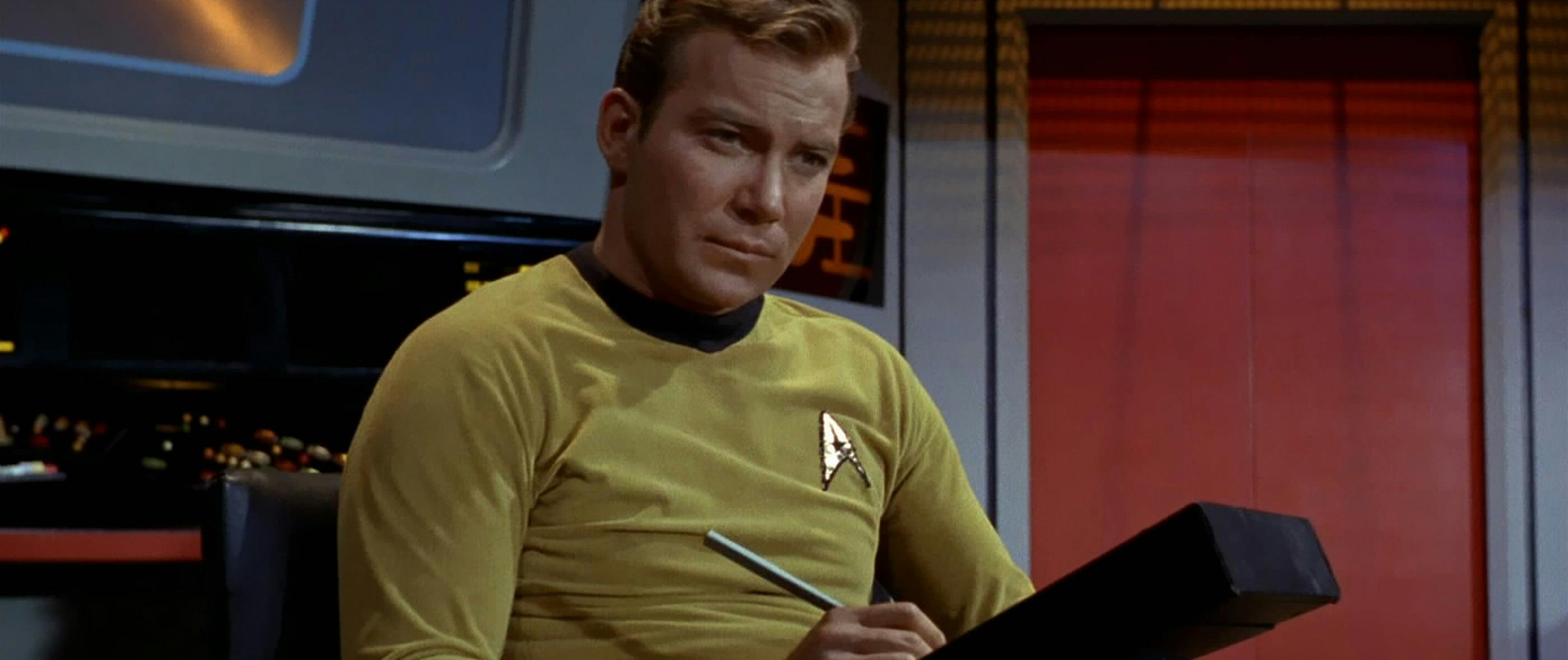
My path to Star Trek fandom is different from the story you usually hear. I didn’t watch it with my parents as a kid and grow up with it as part of my life. And since I’m a Millennial, I certainly didn’t watch it when it aired. In fact, it was Star Trek: The Next Generation that was playing on TV screens when I was a kid, and I had no idea that it was a sequel; I just thought "The Next Generation” was a sci-fi-y subtitle. I have vague memories of sporadically watching an episode here and there when my parents felt like channel flipping, but it wasn’t exactly a household habit. And when Galaxy Quest came out when I was in middle school, I had no idea it was a Star Trek parody. To me, it was just making fun of space shows in general. Actually, I’m pretty sure I didn’t know who Captain Kirk was until high school or so.
So, basically, I spent my formative childhood and teen years utterly clueless about Star Trek: The Original Series. And yet despite being a jaded 21st century viewer (in my late 20s when I finally sat down to see what all the fuss about) watching a show with 50-year-old special effects and 50-year-old attitudes, I quickly found myself utterly sucked in. Admittedly, I was a little skeptical going in. Having grown up spoiled by spectacular special effects and snappy scripts honed by the Hollywood crowd-pleasing machine, I often have trouble getting into older films and TV shows, which can sometimes feel dated and backward. But there’s a reason why TOS and the original-cast films are such enduring classics.
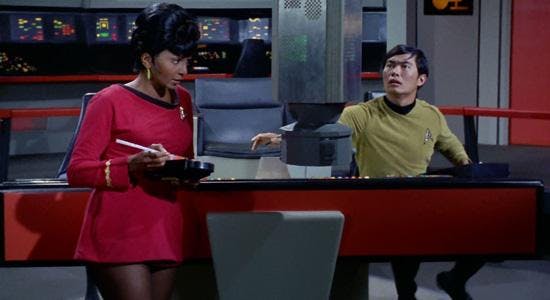
Sure, there are many aspects of the show that certainly were products of their time – those mini-skirts went from revolutionary and exciting in the 1960s to retrograde and impractical in the wake of Second Wave Feminism, and now they’re somewhere in between depending on who you ask (I personally think they’re quite fun, but maybe because from my perspective, enough time has passed that the social implications feel less urgent, and I associate them with modern-day cosplayers). And, of course, there are the special effects, which feel rather old-timey in the age of CGI.
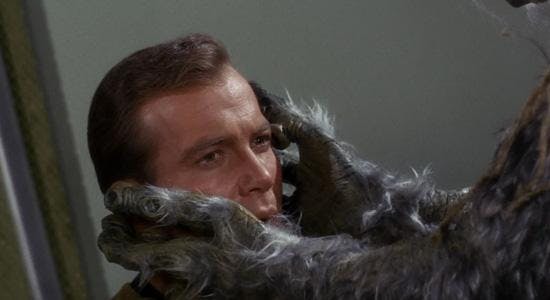
But great sci-fi writing and fantastic character performances are timeless, and Star Trek is full of those. And then there’s Gene Roddenberry’s vision of a better future — something that still feels revolutionary today, especially given the turbulent times we live in and the glum, gritty dystopias that so much current speculative fiction revels in. Here was a creator who dared to hope for, dream of, and depict a utopia. And not the cynical kind built on some dark underbelly. The kind worth striving for, with a foundation of acceptance and peace. Of course, it’s easy to look back from 2018 at something dreamed up in the 1960s and criticize the franchise’s limitations. But I can appreciate the ideas and goals behind the vision, even if the execution isn’t perfect.
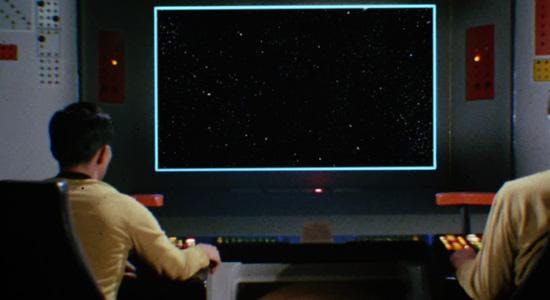
What was really interesting about discovering Star Trek as an adult was recognizing just how much I’d taken for granted in sci-fi — and real-world tech — actually originated with the show. It was like discovering a proto sci-fi world. Big flat-screen TVs, cell phones, tablet computers, voice-activated digital assistants — these things are ubiquitous now in both sci-fi fiction and in American households. It was fascinating to see where it all started and realizing just how great an impact Star Trek had on its genre and the world of its viewers. Then there are the story elements that became tropes and clichés which began with Star Trek. Having seen countless derivatives and parodies, it was somewhat surreal to realize that the brash captain, the logical alien, the gruff doctor, etc. were actually quite original back when TOS was airing.
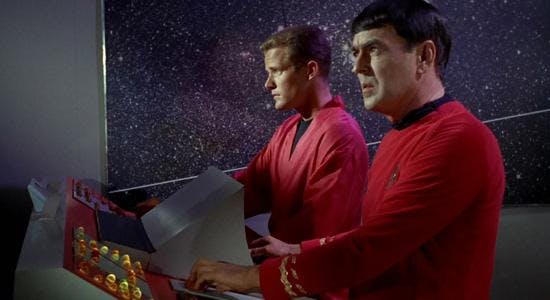
I discovered the wonderful world of Star Trek with a considerably different perspective from the audience it was originally intended for — and from those who grew up with fond memories of it always being part of their lives — and so I inevitably have a different view of the show and the films. And yet, I find that it holds up. From the vision it depicts to the sci-fi concepts it explores, Star Trek: The Original Series and the TOS features have a rare charm and originality. I may be a latecomer to the fandom, but now I’m happily drinking the Kool-Aid.
Scotty, beam me up.
Mary Fan is a sci-fi/fantasy writer hailing from Jersey City, NJ. She is the author of the Jane Colt sci-fi series, which comprises ARTIFICIAL ABSOLUTES (2013), SYNTHETIC ILLUSIONS (2014), and VIRTUAL SHADOWS (2015), and STARSWEPT (2017), and FLYNN NIGHTSIDER AND THE EDGE OF EVIL (2018), a YA dark fantasy and the first novel of the Flynn Nightsider series. Due out in 2019 is STRONGER THAN A BRONZE DRAGON, a YA steampunk fantasy. Check out her official page at www.maryfan.com/.
